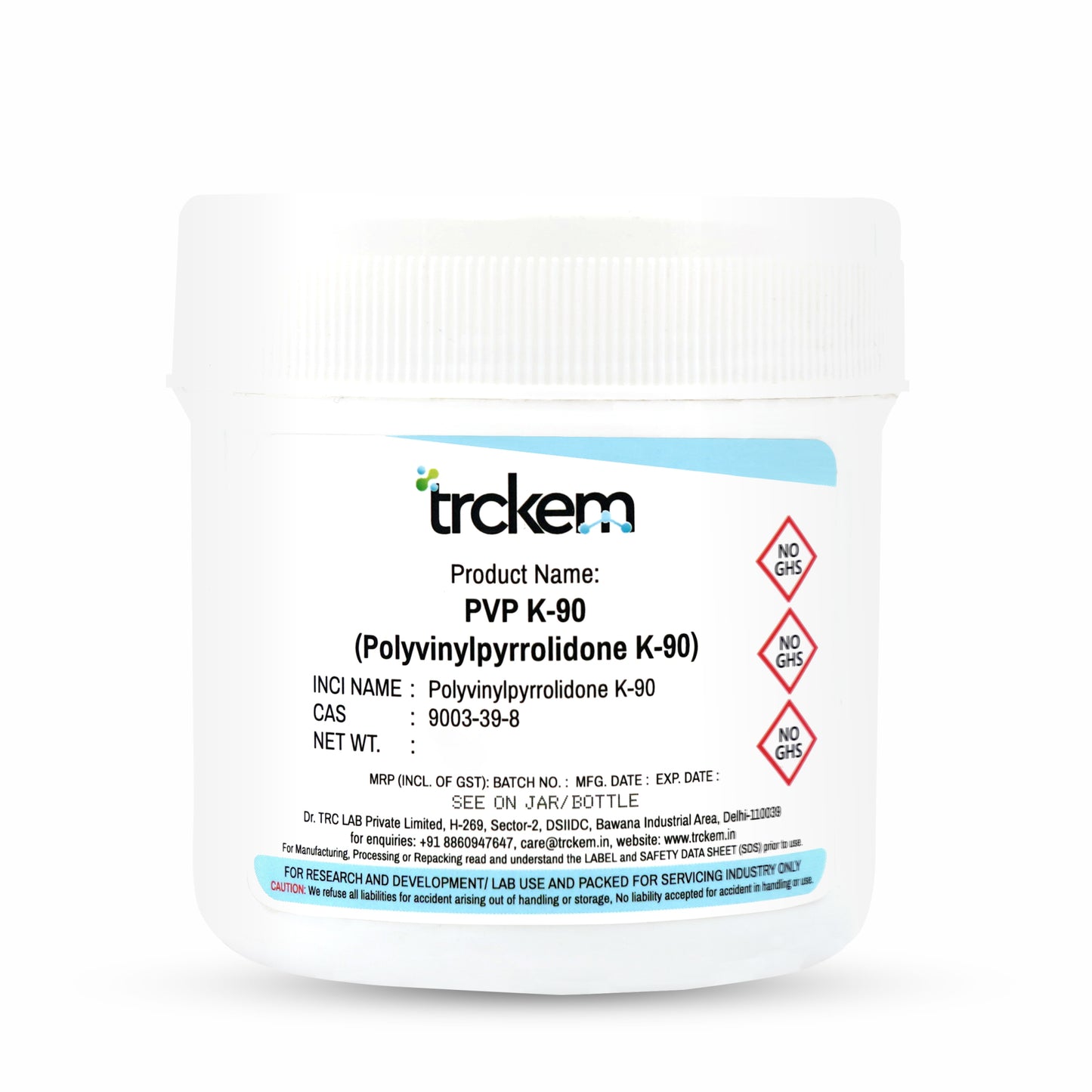
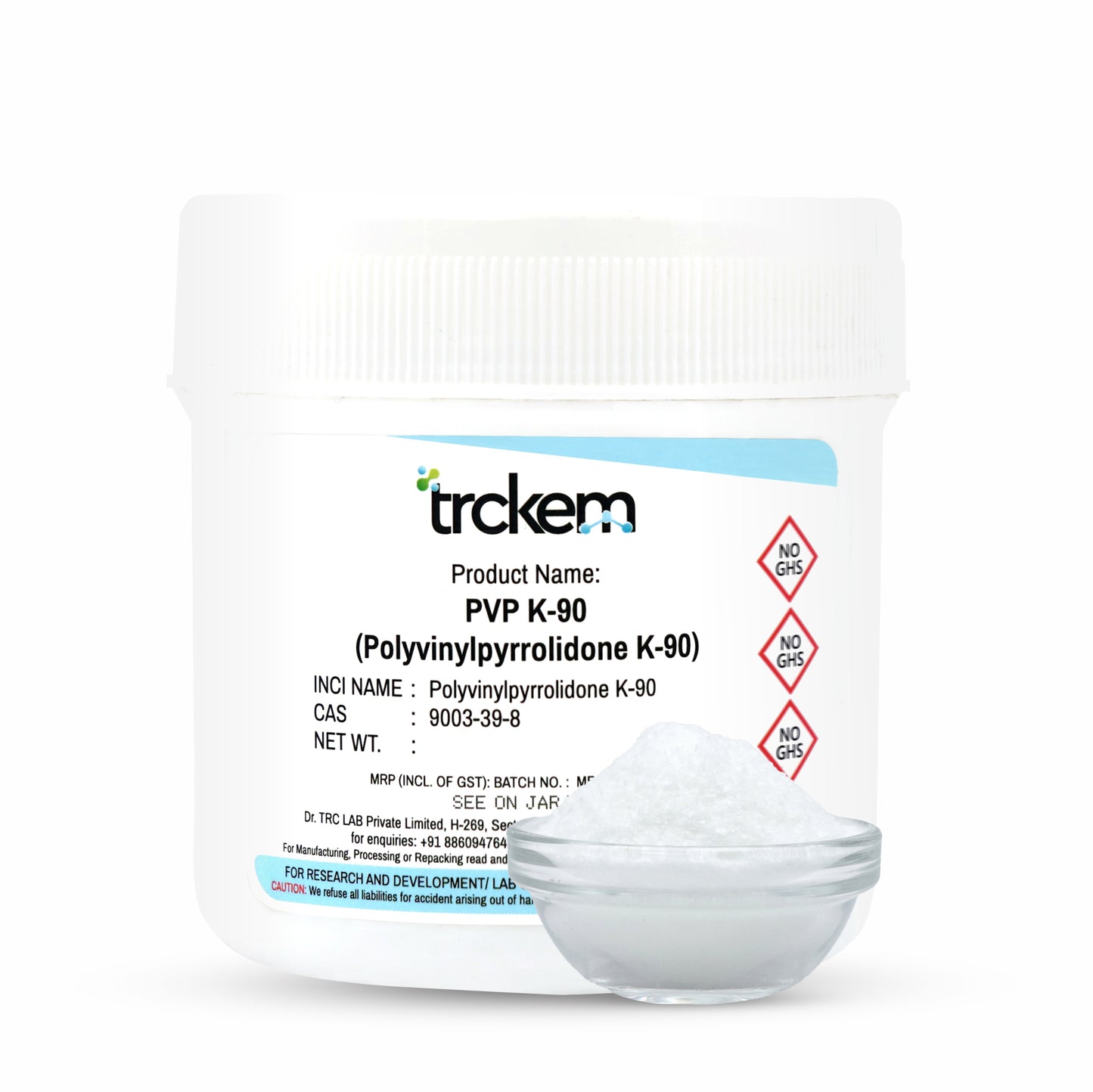
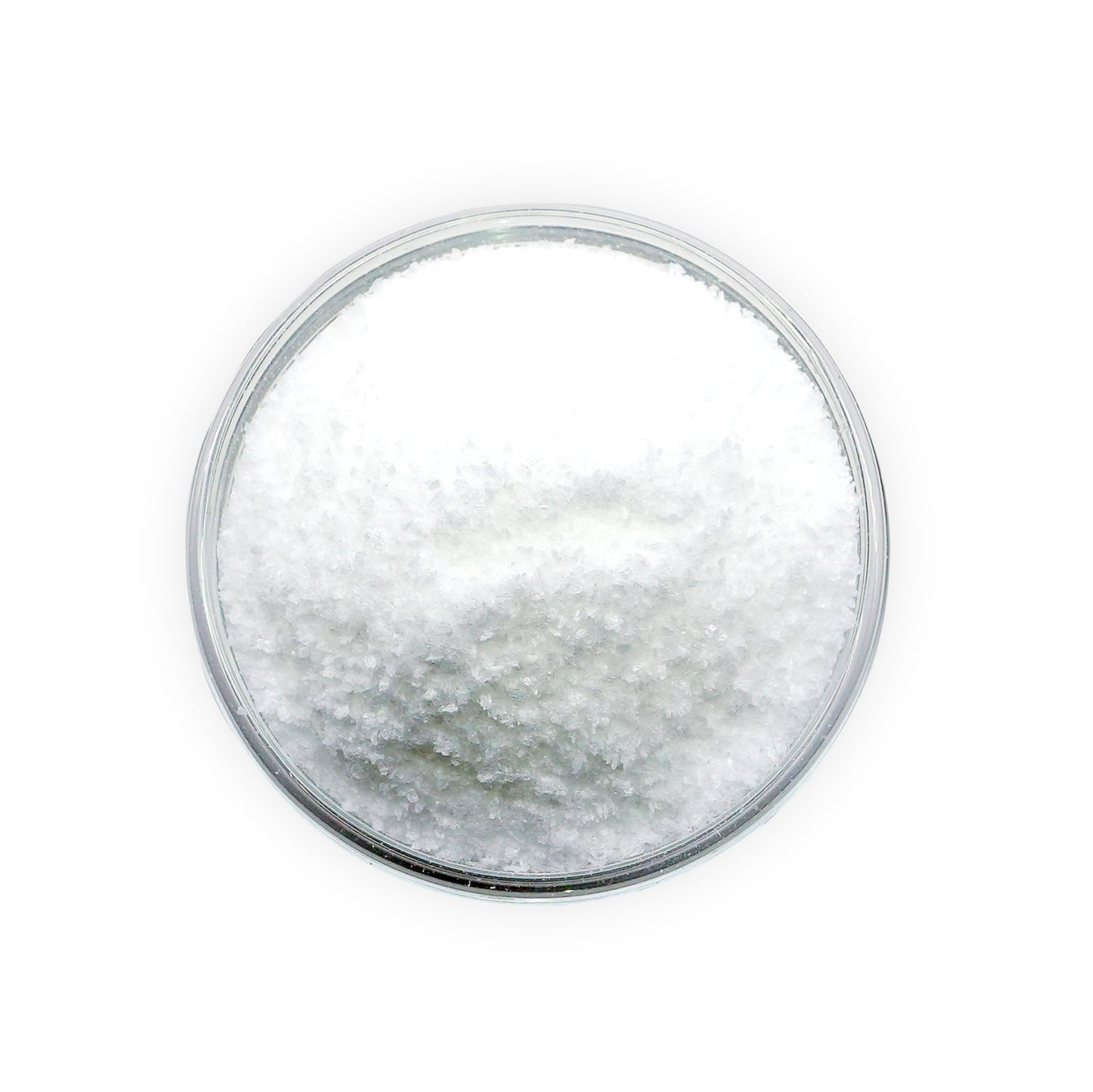
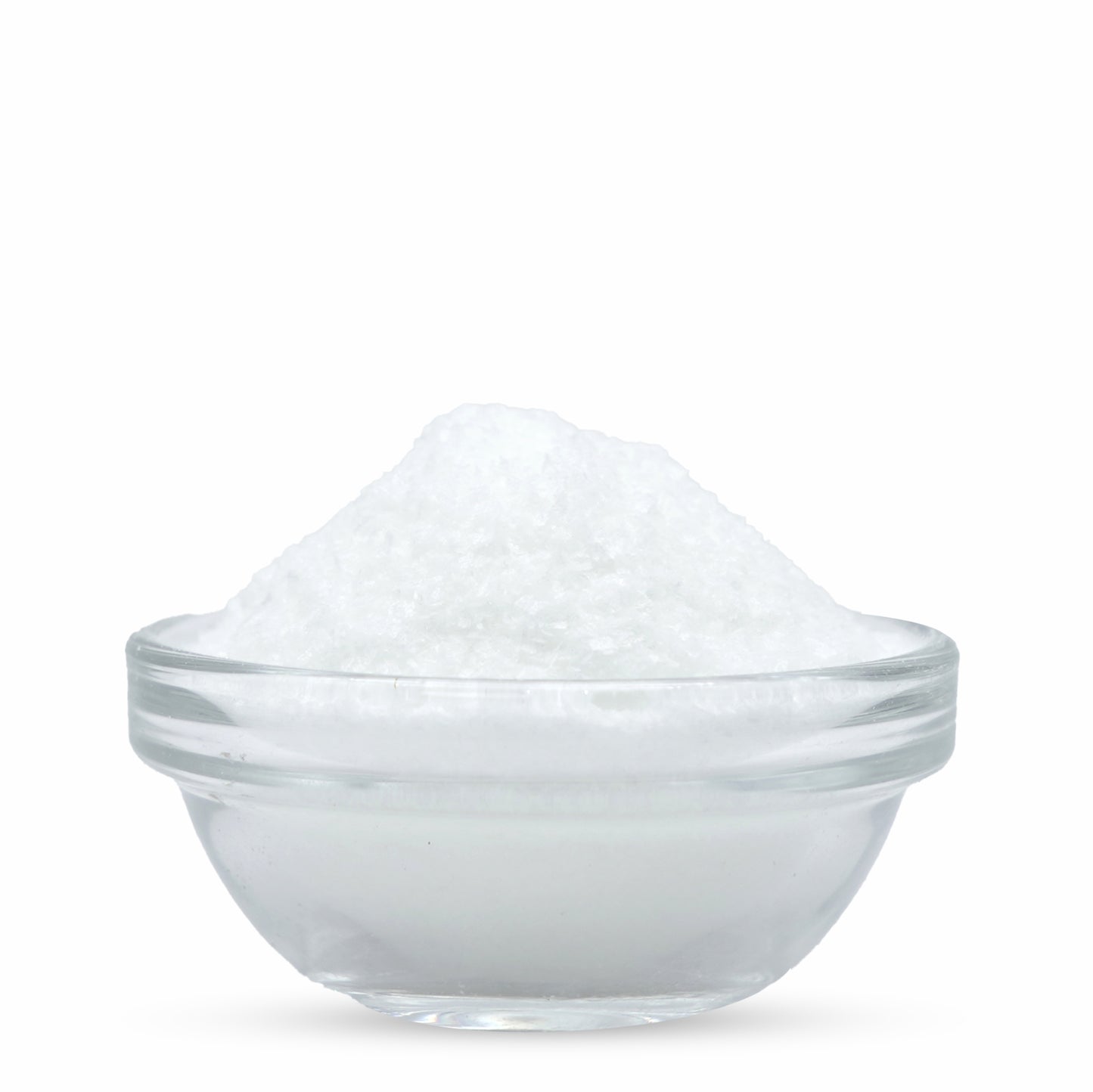
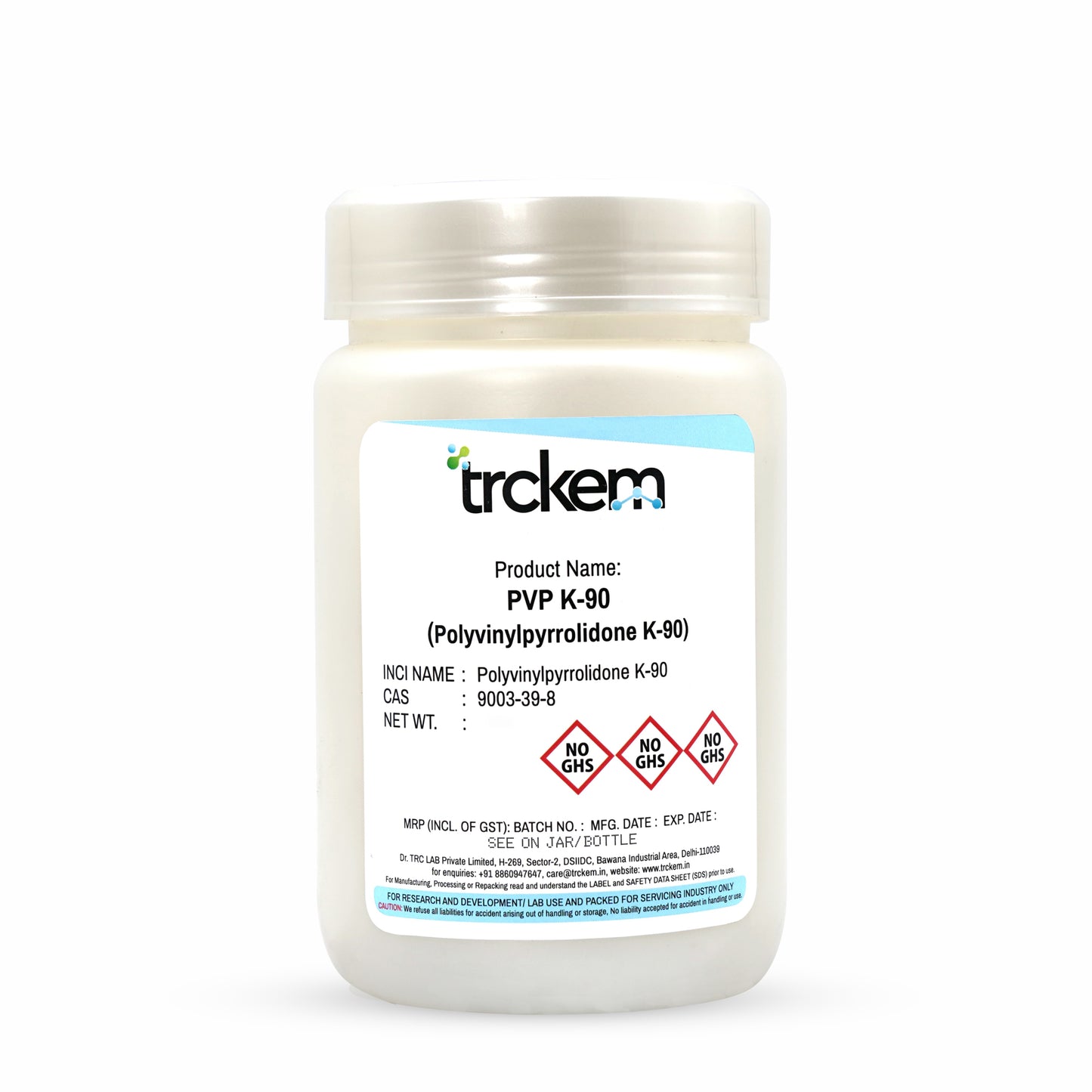
General Description
PVP K-90 (Polyvinylpyrrolidone) is a high-molecular-weight polymer widely used in cosmetics and personal care formulations due to its film-forming, binding, and thickening properties. It is water-soluble and highly effective in stabilizing emulsions and enhancing product performance. Available for bulk purchase, wholesale sales, and direct manufacture, PVP K-90 is a key ingredient in many beauty and personal care products.
Uses in the Cosmetics Industry
PVP K-90 is a versatile cosmetic additive used in a wide range of applications, including:
- Hair styling gels and sprays – Provides strong hold and humidity resistance.
- Skin and facial care products – Improves texture and enhances formulation stability.
- Makeup and foundations – Acts as a binder for better adhesion and durability.
- Oral care products – Used in mouthwashes and toothpaste for its stabilizing properties.
Cosmetic brands and beauty product manufacturers prefer wholesale PVP K-90 for sale due to its superior film-forming ability and non-toxic nature, making it a popular choice in professional and consumer-grade formulations.
Side Effects & Hazards
PVP K-90 is generally safe for cosmetic use but may have some potential concerns:
- Sensitive skin reactions – Some individuals may experience mild irritation with prolonged use.
- Inhalation risk – Fine PVP K-90 powder can cause respiratory irritation if inhaled in large amounts.
- Proper handling precautions – Use protective gear when working with bulk or wholesale quantities to avoid inhalation and skin contact.
Where to Buy PVP K-90?
If you're looking to buy PVP K-90 in bulk, many wholesale suppliers and manufacturers offer high-quality cosmetic-grade PVP K-90 for sale. Whether you need it for hair care, skincare, or makeup formulations, sourcing from trusted manufacturers ensures purity, consistency, and compliance with industry standards.
CAS Number : 9003-39-8
INCI: Polyvinylpyrrolidone
Composition: PVP K-90 is composed of repeating units of N-vinyl-2-pyrrolidone monomers.
Purity Grade: No purity grade applicable
Appearance: PVP K-90 typically appears as a white to off-white, free-flowing powder.
Solubility: PVP K-90 is highly soluble in water and polar solvents. It forms clear, colorless solutions or suspensions.
Preservation : PVP K-90 should be stored in a cool, dry place away from direct sunlight and moisture to prevent clumping and degradation. It should be kept in airtight containers to maintain its quality.
Storage: Store in a closed container at a dry place at room temperature
Country of Origin: India
Raw Material Source : The raw materials for PVP K-90 include N-vinyl-2-pyrrolidone
monomers, which are derived from petrochemical sources..
Manufacture: PVP K-90 is manufactured through the polymerization of N-vinyl-2-pyrrolidone monomers under controlled conditions. The polymerization process may involve various methods such as solution polymerization, precipitation polymerization, or emulsion polymerization.
Animal Testing: Not animal tested
GMO: GMO-free (does not contain plant-derived components)
Vegan: Does not contain animal-derived components
Proposition: PVP K-90 complies with relevant regulations and guidelines
Warning : Avoid contact with eyes. In case of contact, rinse thoroughly with water. Use appropriate protective equipment when handling. Keep out of reach of children.
THE STORY OF PVP K -90 (POLYVINYLPYRROLIDONE)

PVP K-90: The High-Strength Film Former for Long-Lasting Hold & Stability
PVP K-90 is a high-molecular-weight synthetic polymer widely used in cosmetic and personal-care formulations for its exceptional film-forming, binding, and stabilizing properties. Known for delivering strong hold and clarity, it provides structure, durability, and controlled performance in modern beauty systems.

Synthesized Through Precision Vinyl Polymerization
PVP K-90 is produced by polymerizing vinylpyrrolidone monomers under carefully controlled conditions. The resulting polymer is purified, dried, and milled into a fine powder with consistent molecular weight, ensuring reliable solubility, clarity, and performance in cosmetic applications.

Strong Hold, Film Formation & Formula Stability
In cosmetics, PVP K-90 functions as a film former, fixative, and binder.
It provides strong hold in styling products, improves adhesion of actives to skin and hair, and enhances formula stability. Its clear, flexible film delivers long-lasting performance without flaking or dull residue.

High-Performance, Water-Soluble & Formulator-Friendly
Used in hair gels, sprays, mousses, mascaras, foundations, serums, and oral-care products.
Recommended usage: typically 0.5–5%, depending on hold strength and film requirements.
Store in sealed containers in cool, dry conditions.
PVP K-90 is non-toxic, water-soluble, and globally approved, offering safe and consistent performance in both rinse-off and leave-on formulations.
Formulator’s Queries, We Answered
1) What is the CAS number and the INCI name for PVP K-90?
CAS number 9003-39-8. The INCI name is Polyvinylpyrrolidone (commonly abbreviated PVP).
2) What is PVP K-90 (short description)?
PVP K-90 is a high-molecular-weight grade of polyvinylpyrrolidone — a water-soluble, non-ionic polymer produced by polymerising N-vinylpyrrolidone. It is supplied as a hygroscopic white to off-white powder that forms clear, glossy films when dissolved and dried.
3) Key functional uses of PVP K-90 in personal-care formulations
Functions commonly used in cosmetics/personal care include: film former, hair fixative/styling agent, binder, viscosity modifier, dispersant and stabiliser (e.g., for mascaras, hair sprays, gels, lotions and certain makeup). K-90 is selected when stronger film strength or higher viscosity/holding power is required.
4) Physical / technical properties (short)
- Water-soluble and soluble in many polar solvents (alcohols); forms clear, glossy films when cast.
- Average molecular weight for K-90 is high (supplier data often lists ~300–400 kDa depending on brand).
- Hygroscopic powder; glass-transition/melting behavior depends on grade
5) Solubility & formulation tips
Hydrates in water — add to the water phase, allow full hydration (stirring/slow addition helps avoid lumps).
• Compatible with many polymers and inorganic salts; soluble in ethanol/methanol which is useful for sprays and aerosol systems.
Cosmetic Film Formers: Enhancing Performance and Aesthetic Appeal
In the world of personal care and beauty, cosmetic film formers play a crucial role in enhancing the performance and longevity of various formulations. These ingredients form a continuous, thin film on the skin, hair, or nails, providing benefits such as water resistance, durability, and improved sensory appeal. At TRCkem, India’s trusted online cosmetic chemical vendor, we offer high-quality cosmetic film formers to help formulators achieve superior results in their products.
What Are Cosmetic Film Formers?
Cosmetic film formers are polymers or resins used in skincare, haircare, and color cosmetics to create a protective, flexible layer on the applied surface. This layer not only improves adhesion but also enhances the texture, wear time, and water resistance of the formulation. They are widely used in products such as foundations, mascaras, sunscreens, lipsticks, and hairstyling gels.
At TRCkem, we provide a comprehensive range of film-forming agents, ensuring that formulators can select the right ingredient based on their desired performance and application requirements. Whether you need a lightweight, breathable film for skincare or a high-hold polymer for hairstyling, we have you covered.
Benefits of Cosmetic Film Formers
- Long-Lasting Effects: One of the primary advantages of cosmetic film formers is their ability to enhance the longevity of a product. In color cosmetics like lipsticks and eyeliners, these ingredients help maintain vibrancy and prevent smudging or fading.
- Water and Sweat Resistance: Many film-forming agents are designed to repel water, making them ideal for waterproof mascaras, sunscreens, and athletic beauty products. This property ensures that formulations remain intact even under humid conditions or during physical activities.
- Improved Adhesion: By forming a cohesive layer on the skin or hair, film formers help products adhere better, reducing the need for frequent reapplication. This is particularly useful in foundation and BB creams, ensuring an even, flawless finish.
- Enhanced Sensory Appeal: Some film formers provide a smooth, silky texture that improves the overall application experience. For example, in hair serums, they create a lightweight, non-greasy feel while still offering styling benefits.
- Protection and Barrier Function: In skincare, film formers help create a protective shield against environmental aggressors like pollution and UV rays. This added barrier helps maintain skin hydration and reduces trans-epidermal water loss.
Popular Cosmetic Film Formers Available at TRCkem
At TRCkem, we offer a wide variety of high-performance film-forming agents, catering to different cosmetic formulations. Some popular options include:
- Acrylate Copolymers: Used in long-wear makeup and waterproof sunscreens.
- Silicone-Based Film Formers: Provide flexibility and breathability, ideal for hair and skin applications.
- Natural Film Formers: Derived from plant-based sources, suitable for clean and green beauty formulations.
- Polyvinylpyrrolidone (PVP): Commonly used in hairstyling products to provide hold and flexibility.
Choosing the Right Film Former for Your Product
When selecting cosmetic film formers, it is essential to consider factors such as the application, required flexibility, water resistance, and compatibility with other ingredients. TRCkem’s expert team is always available to guide you in choosing the right ingredient for your formulation needs.
By integrating high-quality cosmetic film formers into your beauty and personal care products, you can enhance their performance, durability, and user experience. Explore our range at TRCkem and elevate your cosmetic formulations today!






